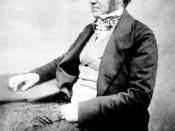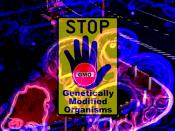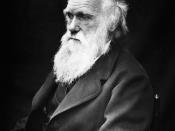Evolution by natural selection is when organisms evolve. This is also called survival of the fittest, only the best survive. Darwin believed there were two parts to evolution, the species change over time and two the change in the species is called natural selection.
Inheritance is where genes are passed from one generation to the next. Gregor Mendel proved that traits were passed on throughout generations. Darwin's ideas were put out there a few years before Mendel ideas, but for the most part Medals' ideas were ignored. Medals' findings were looked over again in the early 20th century.
Cell theory is that each and every organism is collected of cells and these cells are from preexisting cells. Cells could not truly be observed until the microscope was invented around the 17th century.
Biological Classification was not started in the 19th century more like the late 18th century. A man named Carolus Linneaus started classifying organisms into similar groups in the late 18th century.
Due to Darwin findings these types of classification led to classification being based on how species evolved rather than traits.
Bioenergetics is the force that controls life by the equal systems which can direct energies in non-living organisms. "Antoine-Laurent Lavoisier's experiments of the late 18th century helped to place the chemistry of life into the context of a larger understanding of chemistry and energetic" (Pruitt and Underwood, 2006).
Homeostasis is where organisms control their outside by controlling their insides. Ecosystems play a part in homeostasis because different ecosystems make organisms control things differently. "Genetic homeostasis was studied in different maize (Zea mays L.) Genotypes and populations to determine whether selection has affected homeostasis and to determine whether homeostasis is heritable" (Valdivia-Bernal, 1988). Homeostasis is studied every day because there are always thing to learn about...


